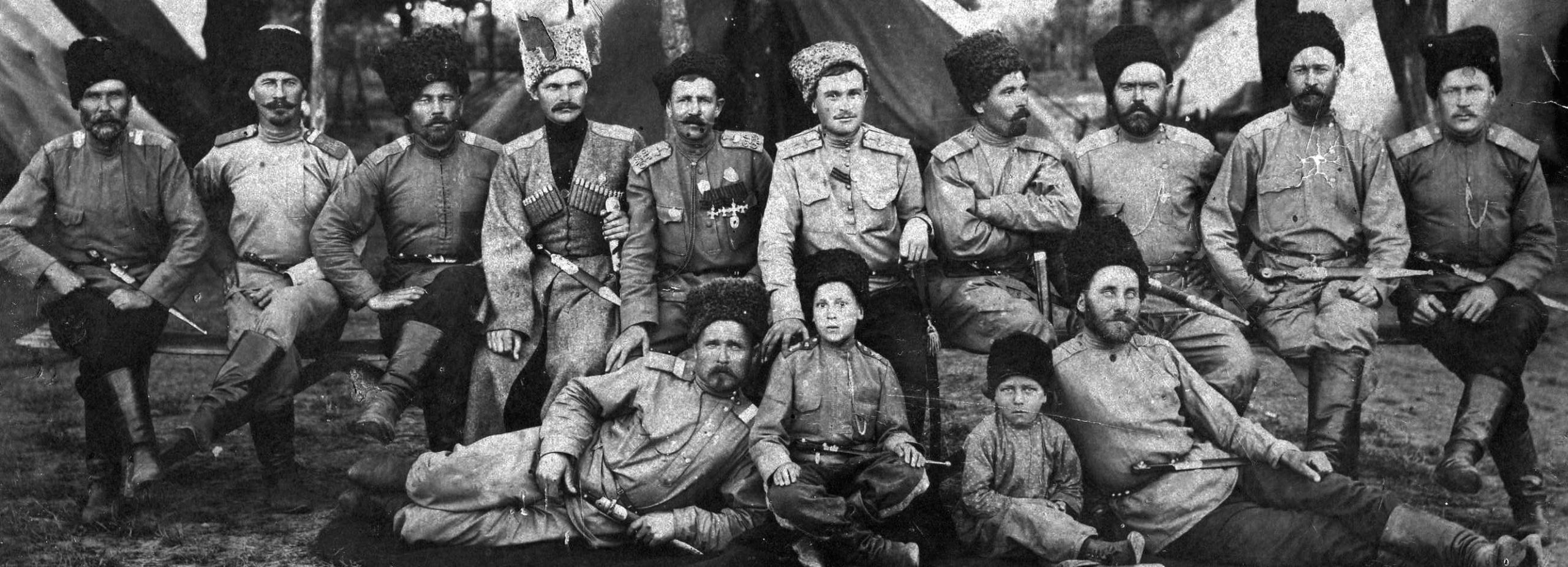Ninety-six years ago this weekend, the Soviet government launched what became a decade-long campaign to “de-Cossackize” Russia, a campaign that Cossacks remember as “yet another genocide” in the Caucasus and a reminder that relations between the Cossacks and the state are more complicated and conflicted than most assume.
As portrayed in Hollywood movies and assumed by many Russian nationalists even now, the Cossacks are viewed as the defenders of order above all and the advance guard for authoritarianism, but in reality, they have their roots in a flight from authority and a tradition of Cossack freedom that makes them anything but comfortable allies of such regimes.
But a full and honest discussion of the Soviet genocide of the Cossacks is blocked today not only by the measures the Soviets themselves took to hide what they had done but by fears that any recollection of conflicts between the Cossacks and the non-Russians in the North Caucasus could undermine Moscow’s use of members of the two communities in Ukraine.
During the Russian Civil War, they were among the most fervent opponents of the Bolsheviks, even though they often proved anything but easy allies for other White Russian movements. And consequently, it should come as no surprise that the Bolsheviks viewed them as an enemy to be exterminated.
On January 24, 1919, the Bolshevik leadership issued a decree sanctioning “mass terror against rich Cossacks,” a nominally class action that in fact became an attack on Cossacks as a whole and led to the wiping out of entire Cossack settlements and the deaths of thousands over the next decade, something surviving Cossacks have never forgotten or forgiven.
In an article on this anniversary, Svetlana Bolotnikova of “Kavkazskaya politika” notes that memorial services are being held in Cossack regions in honor of those innocents who were killed by the Soviets almost a century ago and who have not been fully rehabilitated even now.
Although most Cossacks were anything but wealthy, they were infuriated by Soviet policies concerning an end to social strata, one of which was their own, and confiscation of property and of their weapons. Moreover, many of them felt that the Bolsheviks had declared open season on them in order to help nearby non-Russian groups.
Many of them revolted against Soviet power, and those actions provided all the justification Moscow needed to repress them. Indeed, as Bolotnikova says, local Bolsheviks didn’t need a Moscow decree to do so, and one can say that “a real Cossack genocide” began in the North Caucasus “long before Sverdlov’s directive.”
The situation rapidly got out of hand, with non-Russians attacking the Cossacks in order to seize their lands for themselves, something that forced Stalin to intervene at the end of 1920 and declare that mountaineers who thought they had the right to take the land for themselves rather than for the common use were “deeply confused.”
But the wholesale expulsion of Cossacks continued until April 1921, and attacks on the Cossacks continued for years thereafter because it was always easy for Soviet officials to win popularity by attacking those they could describe as “assistants of the gendarmes” and “enemies of Soviet power.”
“If one considers the resettlement and destruction of the Cossack communities from the point of view of humaneness rather than revolutionary necessity,” Bolotnikova says, “then this was just as inhumane an act as the deportation of the Caucasus peoples in 1944.”
But that is not a widespread view, and there is little effort to talk about the Cossack genocide in films or other forms of popular culture. And there are both longstanding and immediate reasons for that, according to Aleksandr Kuznetsov, a press spokesman for the Terek Cossack Host which suffered more than any other Cossack group 90 years ago.
On the one hand, there are relatively few survivors from those events, and their descendants in many cases are not interested in putting in claims for restitution. And on the other, such claims could create problems for Russia: Cossacks and Chechens are fighting in the same ranks in Ukraine. Talking about the Cossack genocide could divide them.
Moreover, gathering information about what happened is hard. Those who remember it are unwilling to talk, according to Andrey Gordiyenko, a historian at the Stavropol State Regional Studies Museum. Indeed, members of the older generation who know the most are “afraid to talk about this” and have even hidden what happened from their children.
And the executors of this genocide, he continues, worked hard to hide their tracks: They destroyed the old Cossack cemeteries so that no one would be able to establish who lived where and when, yet another way in which what was done to the Cossacks was an act of genocide. Gordiyenko said that he found one gravestone in a trash heap.
Nonetheless, the "Kavkazskaya politika" commentator says, “investigations of the history of those years are continuing which confirm that the Soviet authorities intentionally sought to destroy the Cossacks both as a social stratum and as an ethnos capable of self-organization” on its own terms.

